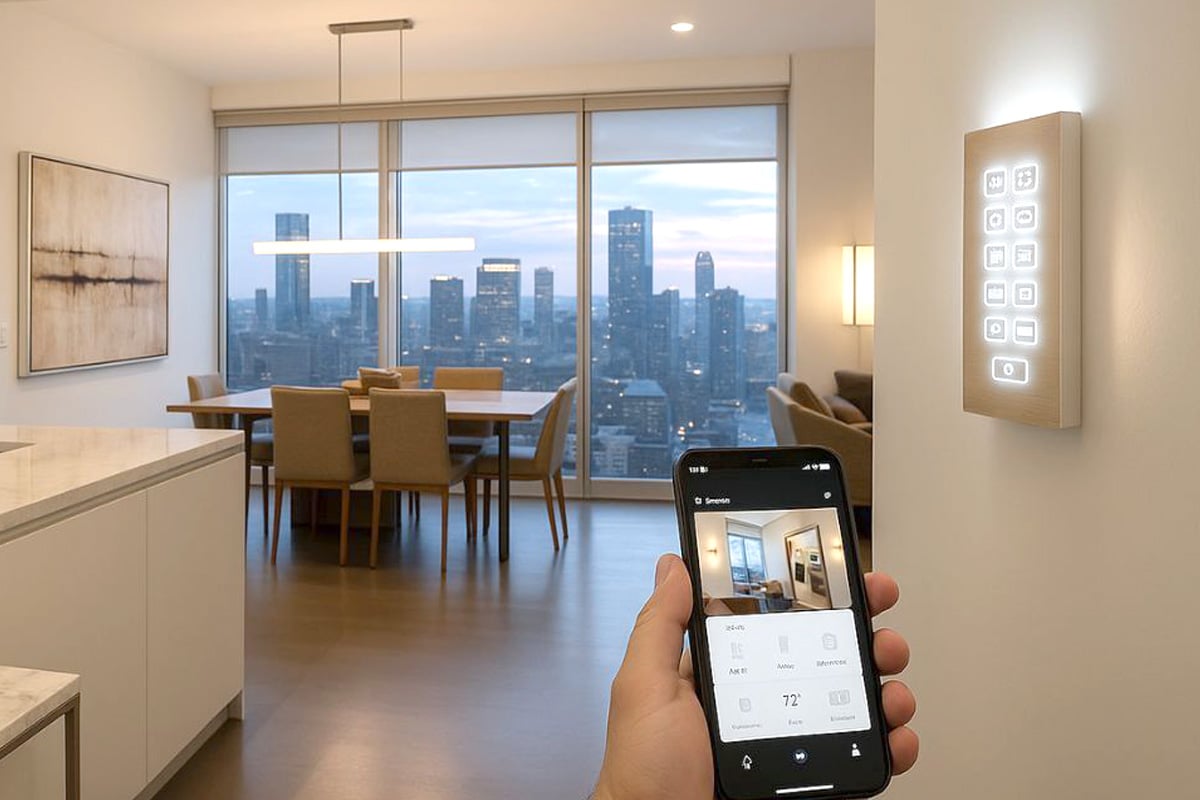How Much It Really Costs to Buy a House (Hidden Fees)
Imagine you finally found the perfect home—your dream home. You've saved enough for a down payment, and the paperwork is in motion. But the deal falls apart when you finally get to the closing table. All because no one told you the reality of how expensive it is to buy a house when you add up all the necessary costs.
The truth is, the down payment is just the tip of the iceberg. In this guide, we're breaking down all the costs associated with buying a home to ensure this never happens to you.
How Much Does It Cost to Buy a House?
So, how much does it cost to buy a home? The answer is...more than you think.
The total cost will vary depending on the purchase price and the specifics of the transaction. Most people account for the major costs, like the down payment and basic homeownership expenses. But it's the smaller fees you accumulate along the way that can really catch you off guard—and it can happen to anyone.
According to Undivided founder Mukul Lalchandani, "Not long ago, I sat down with a couple of high earners who were making over $1 million per year between them. They were looking for a $5 million home and felt fully prepared. They had saved enough for a down payment and received a bank pre-approval letter. But when we walked through the actual closing costs, that's where the math changed. They hadn't accounted for the transfer taxes, attorney fees, and title insurance. Then, they were hit with a new curveball: the buyer-broker commission. Suddenly, they didn't feel so prepared. That was the moment they realized the down payment was just the beginning.”
If the costs associated with buying a house can surprise buyers at that level, it can happen to anyone. So, let's take a closer look at all the potential costs related to buying a house so you never get blindsided.
The Real Cost of Buying a Home
What fees are associated with buying a house? The exact costs involved will depend on the market you're in, the type of financing you use, and the professionals you hire to handle the transaction. But here are some of the common costs to purchase a home that most buyers should prepare for:
- Your down payment: Typically 20% of the sale price, but it can depend on the type of financing you use.
- Closing costs: additional costs when buying a home that usually run between 2-5% of the purchase price.
- Attorney fees, title fees, and transfer taxes: the costs required to close on the sale and transfer the title from the seller to the buyer.
- Inspection and appraisal: Fees when buying a house to confirm the condition and value of the property, typically $300 to $600 each.
- Moving expenses: Not due at the closing table, but you should also factor in any expenses related to transport your belongings from your previous residence to the new location.
- Repairs, painting, and furniture to make the place livable: Not always necessary, but good to budget for in case the new home needs a few quick upgrades.
Think of the down payment as a single slice of cake. It tastes good and looks big, but the true cost of buying a home is the whole layered cake hidden behind the display.
Or you can picture it like a receipt. It starts small, then keeps stacking line by line, until you're at a total you never saw coming.

The "Cash to Close Trap"
Many buyers make the mistake of thinking that if they've saved enough for a down payment, they're ready to make a purchase. But they fail to account for all the various fees that quickly add up when buying a home.
"Cash to close" refers to the total amount due on closing day, and it includes far more than just the down payment. Even after you've made your earnest money deposit, you'll still need to bring a lot more cash to the table. The deposit will go toward the final amount, but it doesn't cover the rest.
So, how much is it to buy a house? What should you plan for?
Beyond just the down payment, most buyers should save an additional 4% to 8% of the purchase price to cover closing costs. Here's what the typical costs of buying a house usually look like:
- Transfer taxes: 1-2% (varies depending on your location)
- Miscellaneous fees: ~1% (things like your attorney, appraisal, inspection, and homeowners insurance)
- Title insurance: 0.5% to 1%
- Prepaid property taxes and mortgage interest: 1-2%
- Buyer broker commission: 2 to 3% (if the seller isn't covering it with a concession)
The buyer commission is huge, and it's a new development. Buyers haven't had to account for it in the past, as traditionally, the seller covered both fees. But in today's market, it can be part of your out-of-pocket costs if it's not baked into the deal. So, make sure to save room for it in your budget just in case.
Use a CEMA to Save
So what can you do? Are you stuck footing the entire bill? Or are there ways to reduce it? One smart way to save is to use a CEMA.
A Consolidation, Extension, and Modification Agreement, or a CEMA, is a type of mortgage financing option that allows you to take over the seller's mortgage instead of getting an entirely new loan. A CEMA is a great way to reduce your mortgage-related closing costs.
Buyers in New York City have to pay a mortgage recording tax based on the loan amount. But the good news is that it only applies to any new borrowings. By using a CEMA, you're taking over an existing loan, not creating a new one. So you would only be taxed on any new money you borrow to cover the difference between the purchase price and the seller's existing loan balance.
A CEMA can also significantly reduce any mortgage-related financing costs, as you won't have to pay an origination fee on the full balance. So when used strategically, a purchase CEMA can lead to a lot of savings at the closing table.
The only catch is that most agents don't even bring it up. It can get complicated, but a good agent will be able to help you navigate the process with confidence.
Pro tip: Ask your agent about it. If they don't know what it is, you need a new agent.

Negotiating Seller Credits and Cost Coverage
Negotiating is another good way to reduce the cost of buying a home. Depending on the seller's motivations or if you're dealing with a developer, there are ways you can convince them to cover some of the cost if you have leverage.
Sometimes it's about timing, sometimes it's about how you write the offers. But it all starts with asking the right things.
Tips to help you convince the seller to cover the closing costs:
- Understand the market: Are the current conditions in favor of the buyer or seller?
- Make a strong offer: Let them know you're serious and willing to move quickly, but want to negotiate.
- Consult with your agent: A good agent will let you know what is realistic and give you tips on what to say.
We've had plenty of clients who walk into a deal thinking they'd eat 100% of the fees, only to walk out with half of them covered. But you won't know if you don't start the discussion.
Rolling Costs Into The Mortgage
The final strategy to reduce your closing costs is to roll them into your mortgage. This will only work if you're qualified for a larger loan. Keep in mind that it will increase your monthly mortgage payment. But it can help ease the burden of having to come up with all the cash upfront by the closing, which may be better than putting your plans on hold. So for the right buyer, it's a decent strategy.
Ultimately, buying your dream home takes more than just a down payment. But now that you understand the potential landmines to avoid, you're already ahead of most buyers.
Knowing how much it really costs to buy a home is one thing. But finding the perfect place and negotiating a great deal is another thing entirely. That's where Undivided can help.


